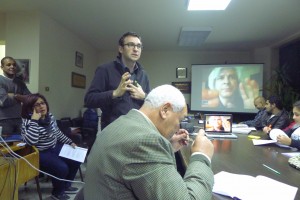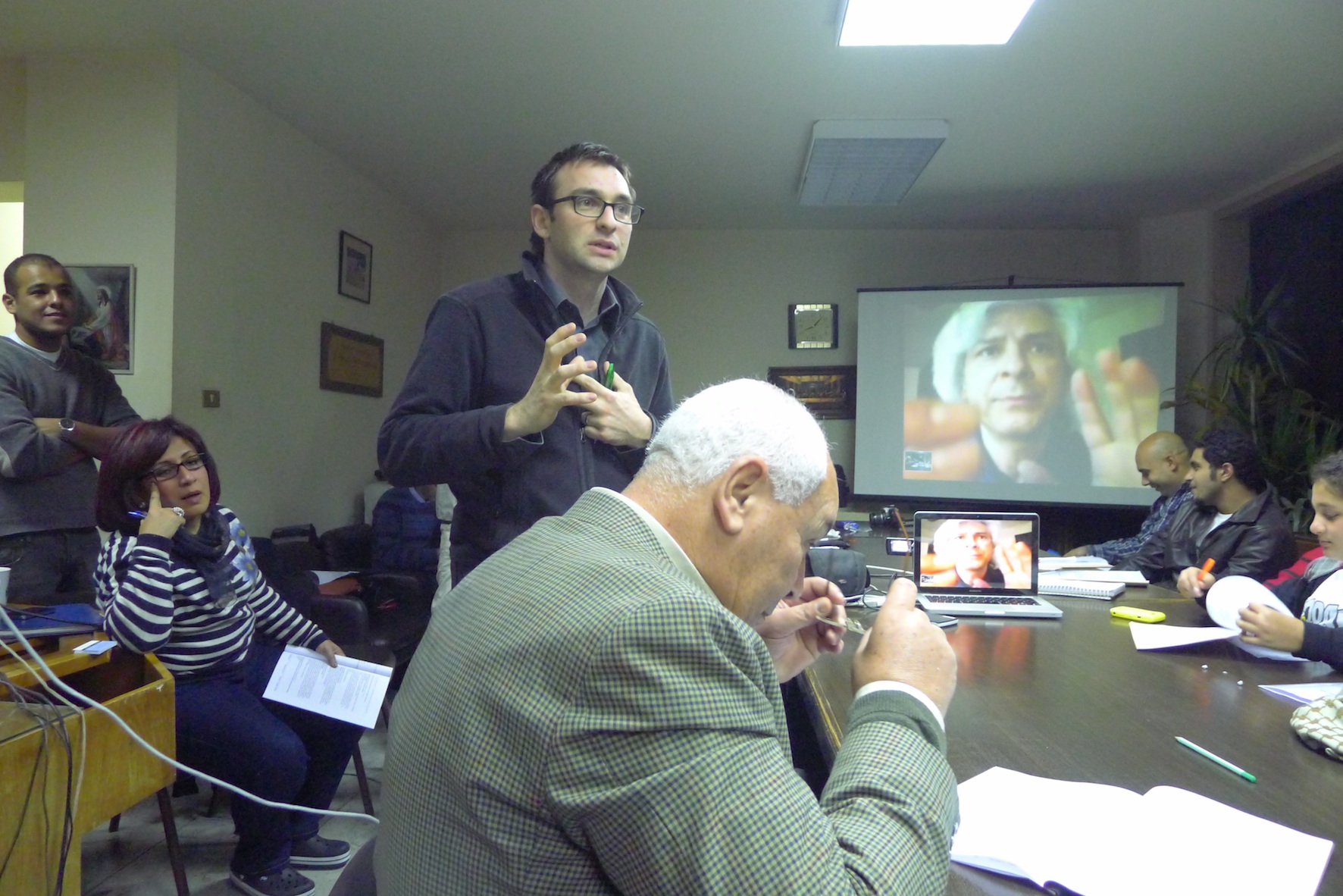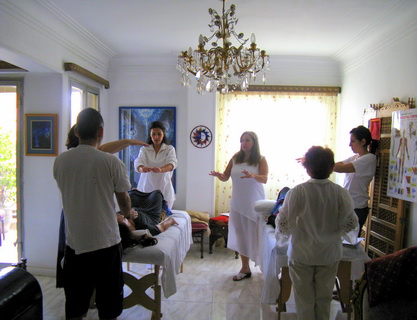
We are living in a time of change and transition. Previously revered benchmarks are carelessly tossed to the side of the revolutionary road and alternative methods that were once viewed with derision and disdain are now embraced with speed and seemingly little discrimination. Like many other fields, Egypt’s health sector is going through its own revolution; alternative methods of healing have entered the mainstream with a velocity that would have been unthinkable two years ago. Hypnotherapy is part of this new movement and P-Etienne Vannier, Certified Hypnotist, found a way to bring this evolution to the revolution.
To Vannier, the connection with his work to the revolution was obvious, both philosophically and practically. “Hypnotherapy is about being empowered and striving to have a better life, be a better person. The revolution is trying to achieve exactly that, but on a larger scale. Hypnotherapy is a natural process and has a role to play in the revolution by promoting wellness, preventing trauma and help people to heal from violence and grief. The Arab world needs healing tools to move forward, and this is one of them.”
For most of us hypnotism conjures up images of people on a stage, clucking like a chicken or barking like a dog, a medium of entertainment for the many at the expense of the few. The therapeutic use is very different, even if the techniques used are exactly the same. “Hypnotherapy utilizes the state and process of hypnosis to help individuals achieve greater outcomes in performance and well-being. Hypnosis helps individuals by allowing them to focus attention in a very special way, causing their objectives to become clearer, while obstacles often simply disappear. This relaxed mental state is also mirrored in a relaxed physical state presenting profound neuro-chemical and hormonal changes,” as explained by Timothy L. Trujillo, a Mind-Body Healing Specialist with certificates in Acupuncture, Hypnotherapy, Reiki, and Reflexology. Trujillo is the founder of First Medicines, a nonprofit organization with a mission to reduce suffering and enhance health worldwide through traditional and integrative therapies. Vannier and Trujillo have cooperated on projects in Egypt before and recognized a need to be filled in the treatment of patients in the field hospitals in Tahrir.
“People who are experiencing trauma or who are in shock are per definition in a state of trance,” explains Vannier. “This means they are in a suggestible state and the words that are spoken to them will have a deep and long lasting effect. When dealing with people in an emergency situation the way they are addressed is of enormous importance. There are three options; say nothing, say something and make it worse or say something that promotes healing. It can make the difference between recovering from a trauma in a week or in five years.” This is the premise on which the training Vannier, joined by Trujillo, offered to the volunteers of the field hospital was based.
Contacting the volunteers was easy—Vannier visited several field hospitals in Tahrir and offered his help as a hypnotherapist. “Yes, I did get some smiles when I first introduced the concept to them, “Vannier remembers,” people kept referring to Fil Hawa Sawa,” (a famous, old Egyptian movie were the main protagonists keep trying to hypnotise each other culminating in an iconic scene of the mother of the bride putting all wedding guests under hypnosis during the reception.) “The volunteers were interested though in what I had to say, and once I explained the simplicity of the concept and the enormous positive impact these tools could have on the wounded coming into the field hospital, most were enthusiastic about following the training.”
During two separate trainings Vannier and Trujillo, who joined via Skype, taught 50 volunteers the proper way to address the wounded that were arriving in their field hospitals. Amongst the trainees were several medical professionals who, once sceptical, changed their minds after having gained this new knowledge. One of Cairo’s universities is currently considering integrating learning these techniques in their curriculum, a project that is still in the planning stages but shows how far Egypt has come in the transition from tried and tested to including alternative methods of healing.
Vannier and Trujillo made a documentary of the trainings, titled “Critical Care Communication in Cairo”, and hope to expand their work to other Arab countries as the need arises.
For those who would like more information please contact Vannier on twitter: @AbuSeifV or on Facebook: HypnoCairo.



